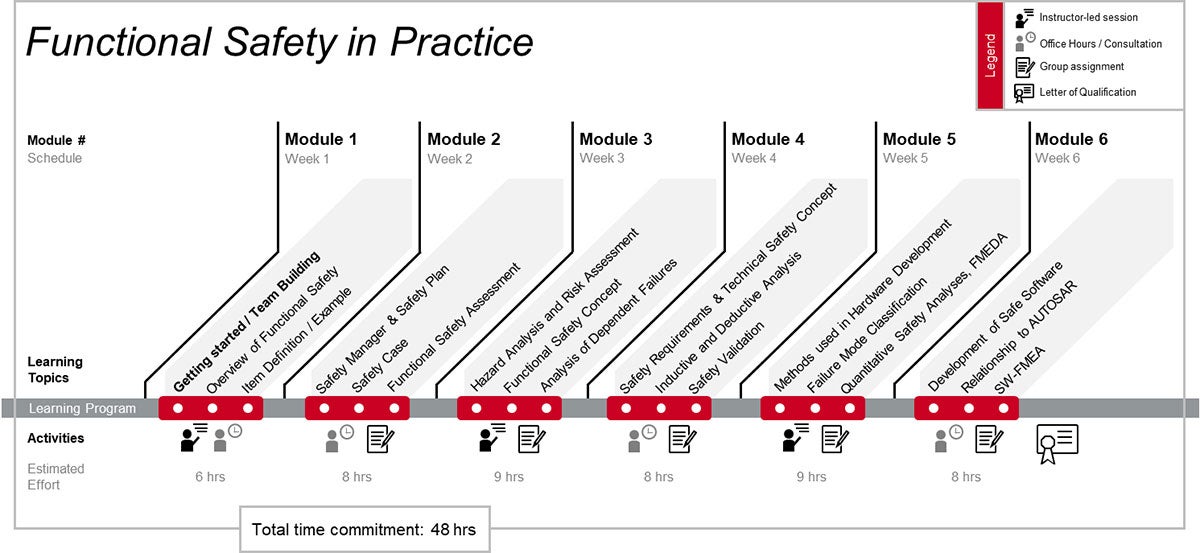
6 weeks
of hands-on training
€1,690
special offer
Feb. 9, 2026
next cohort start date
Remote
learn from anywhere
Curriculum
The Functional Safety in Practice learning program takes six weeks to complete. It consists of six modules, each with approximately eight hours of intensive, hands-on training based on a continuous example that we use throughout the course.
Modules
- Module 1: Getting started
The module starts with an instructor-led session. The aim is team building to get the small virtual learning groups up and running. The curriculum and learning platform are introduced and questions from learners are answered. An overview of functional safety is given and the example item, i.e., Electrical Steering Column Lock (ESCL), which runs through the learning program, is explained.
- Module 2: Management of functional safety
The module examines the role of the safety manager and the associated task of creating a safety plan (group assignment). Various concepts such as safety element out of context, reuse, proven in use, safety case, functional safety assessment and audit are addressed.
- Module 3: Functional safety in the concept phase
The module focuses on three main topics: hazard analysis and risk assessment (group assignment), functional safety concept, and analysis of dependent failures. The learners make an excursus on functional safety for trucks & buses, motorcycles and take a look at SOTIF as an enabler for autonomous driving.
- Module 4: Functional safety on system level
The module provides the learner with an insight into functional safety at system level. In particular, it covers the technical safety concept (group assignment), inductive and deductive analyses including FMEA and FTA, as well as integration, testing and safety validation. The module includes an instructor-led session.
- Module 5: Functional safety and hardware development
The module examines the topic of functional safety and hardware development, in particular the methods used in hardware development, failure mode classification and quantitative safety analyses such as FMEDA (group assignment). In addition, learners make an excursus into the topic of functional safety and semiconductors.
- Module 6: Functional safety and software development
The module concludes the curriculum with a look at functional safety and software development. Learners gain an overview of safe software development, the relationship between functional safety and AUTOSAR, as well as SW-FMEA (group assignment). The topic of machine learning is covered as an excursus. The module includes a final instructor-led session.

Learning objectives
The Functional Safety in Practice learning program offers learners an overview of the basics of functional safety:
- Its typical work products, e.g., item definition, safety plan, hazard analysis and risk assessment (HARA).
- Relevant analyses, e.g., Failure Modes and Effects Analysis (FMEA), Fault Tree Analysis (FTA), and Failure Modes, Effects, and Diagnostic Analysis (FMEDA).
- Functional safety in hardware development, software development, and system-level development.
Become a Functional Safety Practitioner by learning how to support the creation of work products and the implementation of the respective work processes in your own work context.
Learning approach
We follow a community-based approach and give it a place to thrive - called Campus. In small virtual groups, learners learn from and with each other to maximize knowledge retention.
At Campus, curricula address a variety of learning styles by:
- Providing content from module handouts to work product templates and videos.
- Enhancing your learning experience with guiding questions.
- Challenging you with weekly group assignments.
- Testing your knowledge at the end of each module.
In addition, your learning group will check the second group's results while a third group checks yours. Group results must be uploaded to our Campus learning platform by Thursday evening. You will then receive feedback from your peers.
Sample module schedule
- View a sample module schedule
- Monday: Self-study of given material, i.e. video, papers, book chapters, ISO 26262 – 1 hour
- Tuesday: Online group meeting to discuss technical lead questions and the weekly group assignment – 1 hour
- Wednesday: Offline individual work to solve the committed part of the group assignment – 2 hours
- Thursday: Online group meeting to discuss, combine individual results, and to upload the group assignment to our Campus learning platform – 2.5 hours
- Friday: Online group meeting to review other team’s group assignment results; take individual weekly exam – 1.5 hours
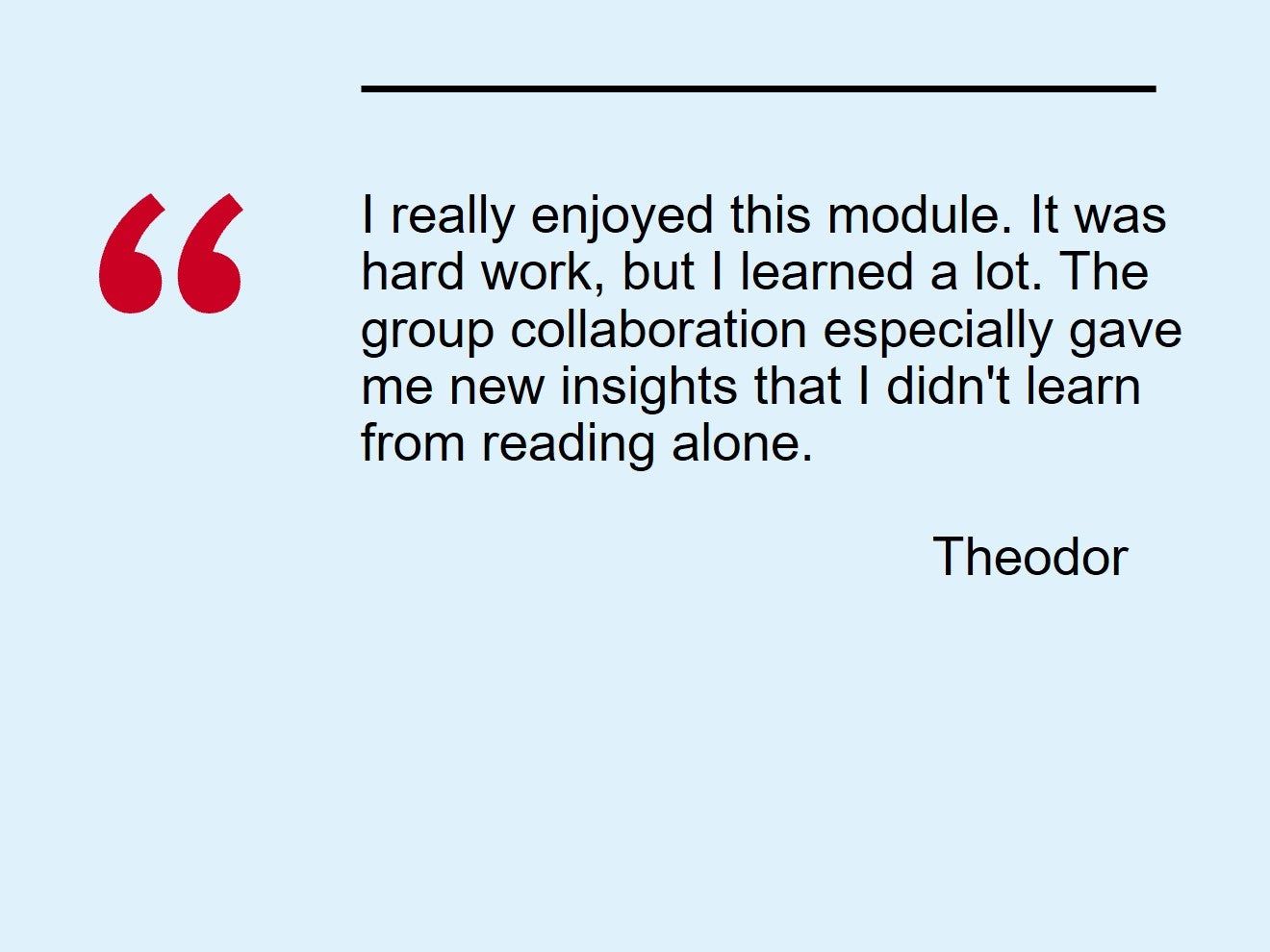
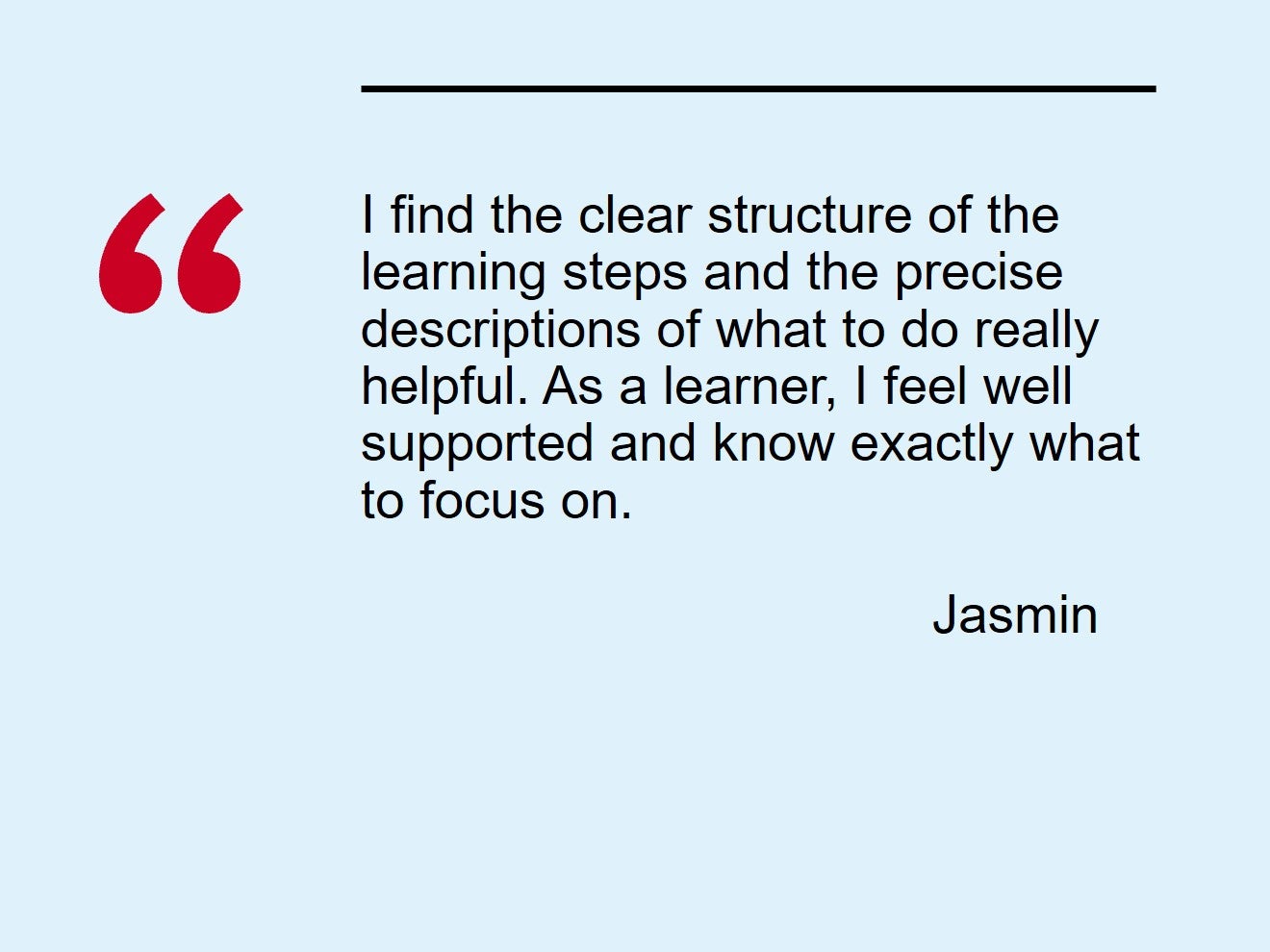
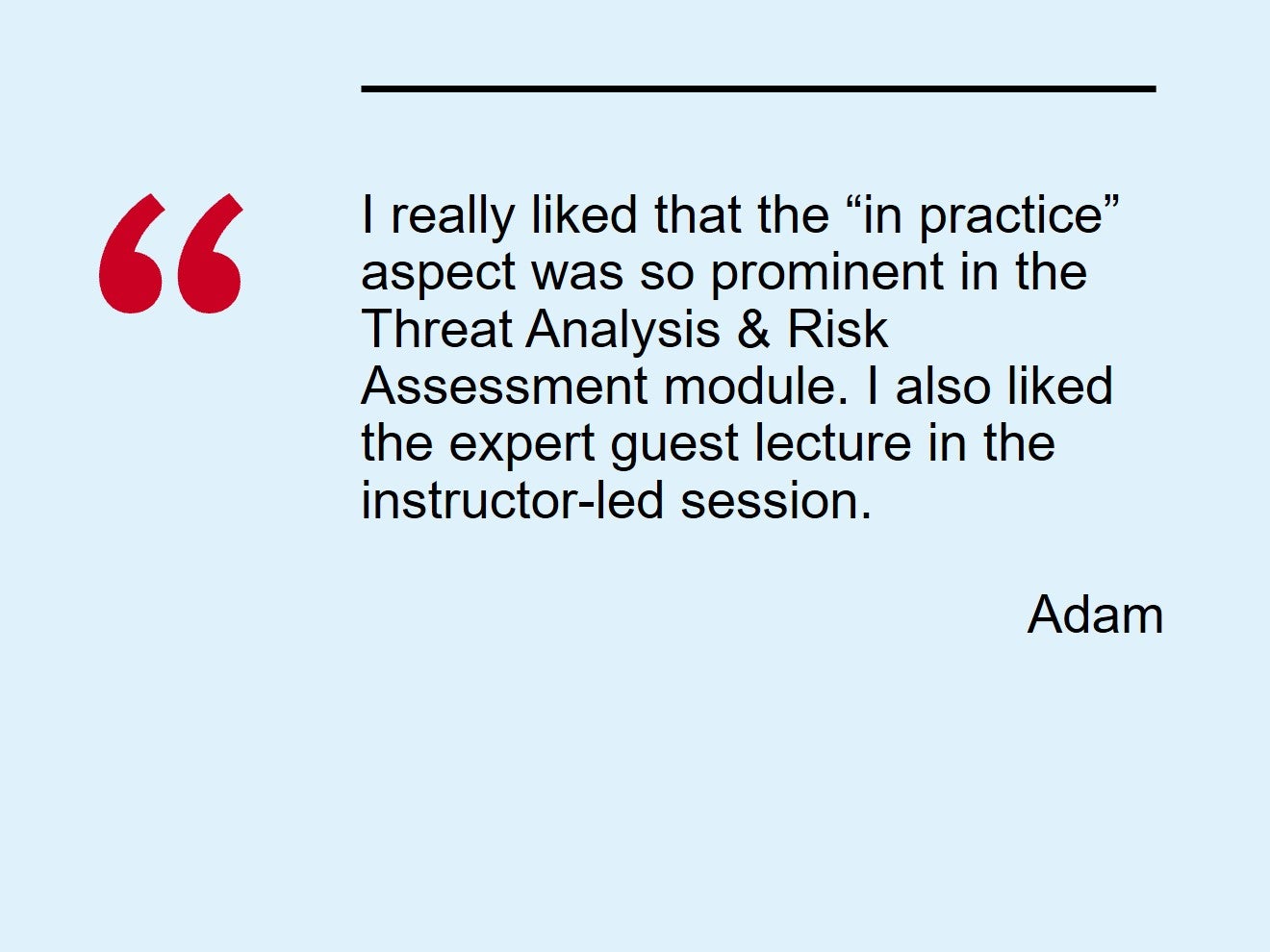
Suitable for
The Functional Safety in Practice curriculum is designed for a wide audience interested in retraining or upskilling, including:
- Functional safety managers/engineers (in training)
- System/hardware/software architects and engineers and testers
- Quality assurance managers/engineers/auditors
- Leaders/members of engineering process group
- Configuration managers
- Project managers
Placement test
- Take the placement test
- Do you work in electronics development in the automotive sector?
- Do you have practical experience in at least one of the following areas?
- Software development or software engineering
- Electronics hardware development
- Electronics testing
- Process development in electronics development
- Management in electronics development
- Quality assurance, or assessment in engineering departments
- Are you currently working, or will you soon be working on projects involving automotive functional safety according to ISO 26262?
- Do you speak English well enough to actively participate in a technical discussion?
- Can you make group learning a priority for eight hours a week for six weeks in a row without being the one setting the schedule?
If you answered 'yes' to all these questions, you can be confident that you will benefit from attending this learning program.
If you answered 'no' to some of the questions, this curriculum is probably less suitable for you. Please contact campus@ul.com to see if there are other solutions for your specific training needs.
Letter of Qualification
To successfully complete the Functional Safety in Practice learning program and receive a Letter of Qualification, learners must:
- Actively participate in the group work, including submitting the group assignments on time.
- Pass the knowledge check (multiple choice test) at the end of each module.
The Letter of Qualification, recognized in the automotive industry, demonstrates that the learner has acquired the relevant knowledge and skills in the area of functional safety.
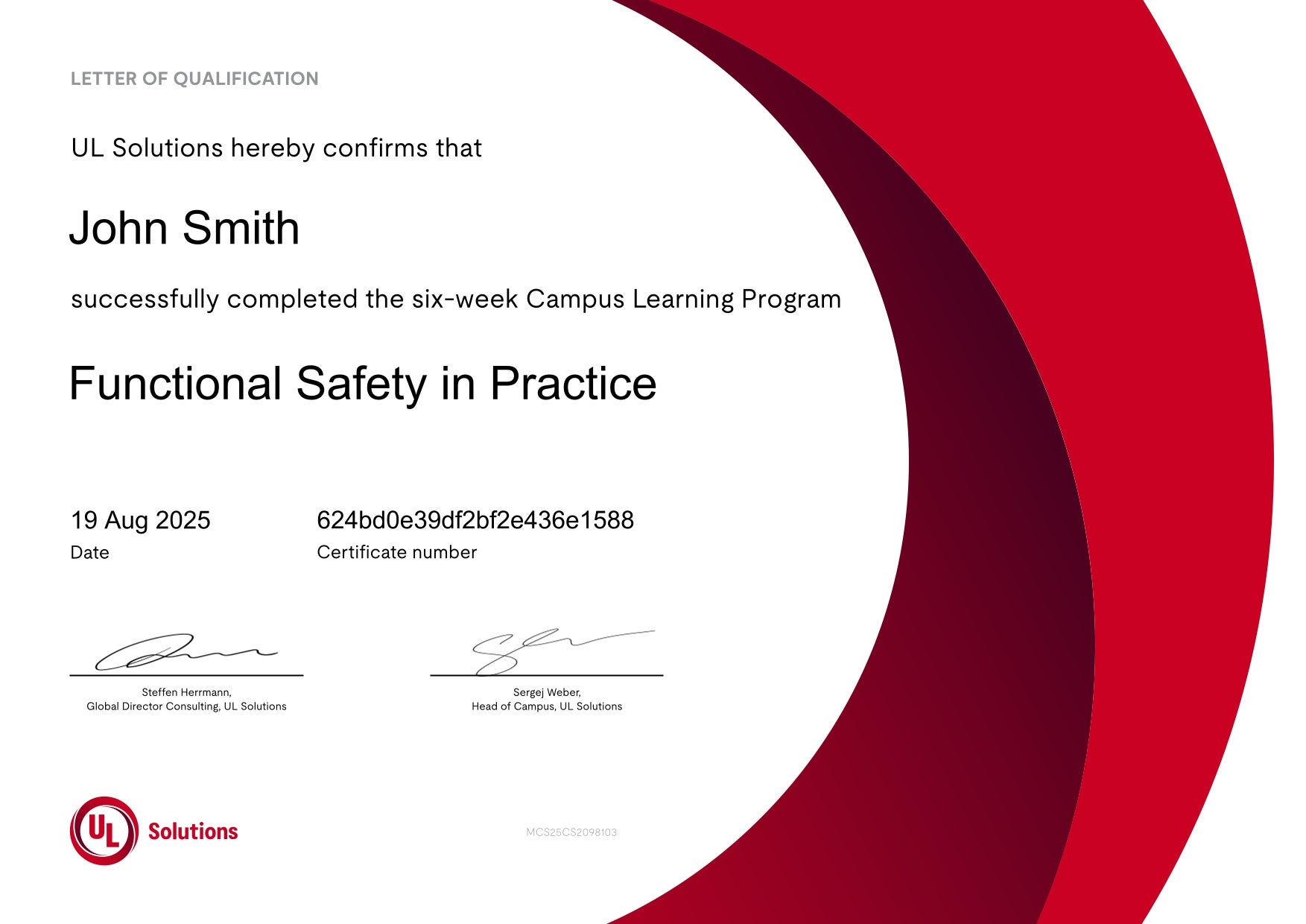
FAQs
- How do I enroll in the learning program?
On this page, click on the Registration button. You will be taken to the Registration page where you will find the terms and conditions and be able to book your place on the learning program by clicking on the See Dates button and following the registration process.
- How are the learners divided into learning groups?
At Campus, learners from different companies learn from and with each other. To facilitate self-organization, we group learners by time zone, self-assessed technical understanding, and preferred language (all content and group work deliverables are in English).
- Does the learning program require on-site attendance?
No, at Campus, participation in learning programs is remote only.
- What happens if I miss a module?
We understand that these things happen. However, in order to receive a Letter of Qualification, you must actively and independently complete the missed content. Furthermore, you must review the missed group assignment including group deliverables, and the feedback from your peer group.
- Do I have to share any confidential information with my learning group?
No. All learners are required to adhere to their company's policies regarding the sharing of confidential information. We do our part by providing templates and the like so that proprietary work products do not have to be used.
- When will additional curricula be available?
We are currently working on additional learning programs for Campus. In mid-June 2025, we will launch Automotive Cybersecurity in Practice and Systems Engineering in Practice. A Software Defined Vehicle topic will follow at the end of the year. Stay tuned!

